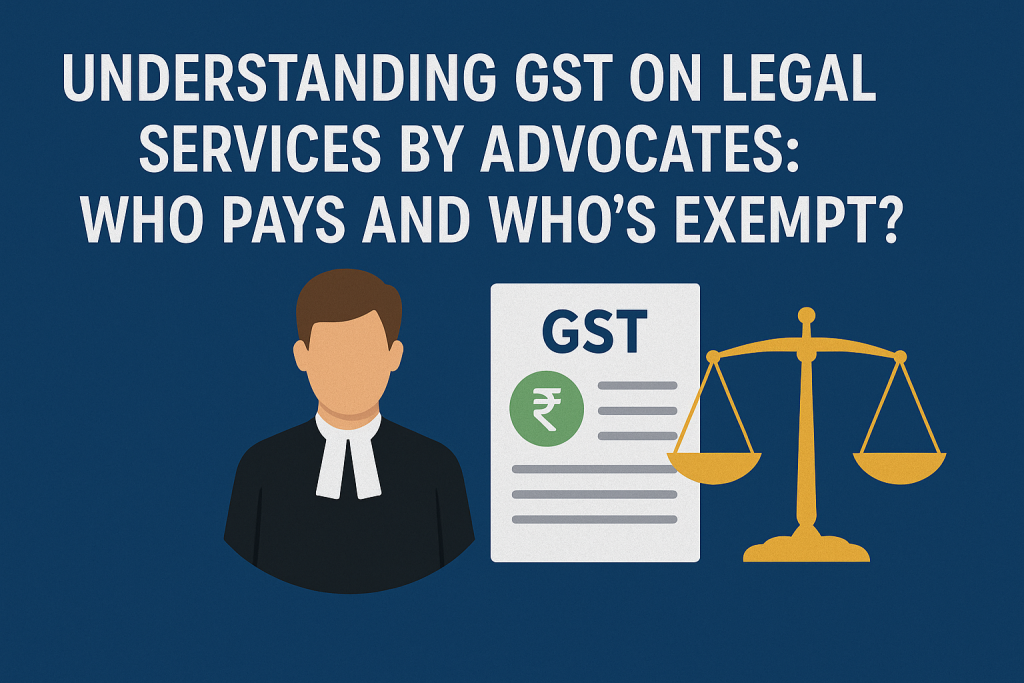Understanding GST on Legal Services by Advocates: Who Pays and Who’s Exempt?
Legal services form an essential part of both personal and professional life, but when it comes to taxation, many are unsure about whether GST (Goods and Services Tax) applies to legal services provided by advocates. The Central Goods and Services Tax (CGST) Act, 2017, along with Notification No. 12/2017-Central Tax (Rate), clearly outlines the situations where GST is applicable and where it is not.
Let’s break it down simply.
1. When Legal Services Are Exempt from GST
If you’re an individual seeking legal help for personal reasons—say, a family dispute or a property issue—you don’t need to worry about GST. The law specifically exempts legal services provided to non-business entities.
This exemption covers a wide range of recipients. For instance:
- Individuals dealing with personal matters like family or property disputes.
- Non-profits such as NGOs and charitable trusts, as long as their activities are non-commercial.
- Resident Welfare Associations (RWAs) that are functioning as non-business entities.
- Religious bodies including temples, churches, and mosques.
- Charitable institutions such as free or subsidized schools and hospitals.
- Other advocates or law firms receiving services from fellow legal professionals.
- Government bodies, including central, state, and local authorities, also enjoy exemption when availing legal services.
In all the above cases, legal services are not considered a part of business transactions, and hence, GST does not apply.
2. When Legal Services Attract GST at 18%
On the flip side, when legal services are provided to entities involved in business or commercial activities, GST kicks in—and at a rate of 18%.
Here’s who needs to be aware:
- Sole proprietors running businesses, even small ones, fall into the taxable bracket.
- Companies, including private limited and limited companies that are commercially engaged.
- Firms and LLPs (Limited Liability Partnerships) that are registered and conducting trade or services.
- E-commerce businesses and startups, particularly those recognized or registered with the DPIIT, also need to pay GST on legal services.
- Registered MSMEs and traders with valid GST or UDYAM registration numbers are treated as business entities and are thus subject to 18% GST on legal services.
Conclusion
If you’re availing legal services, it’s important to identify your status—whether you’re an individual or represent a business entity—because that determines your GST liability. For non-business clients, the legal service is GST-free. But for business operations, be prepared to add 18% GST to your legal bills.
Knowing where you stand helps avoid unexpected tax liabilities and ensures better financial planning.




